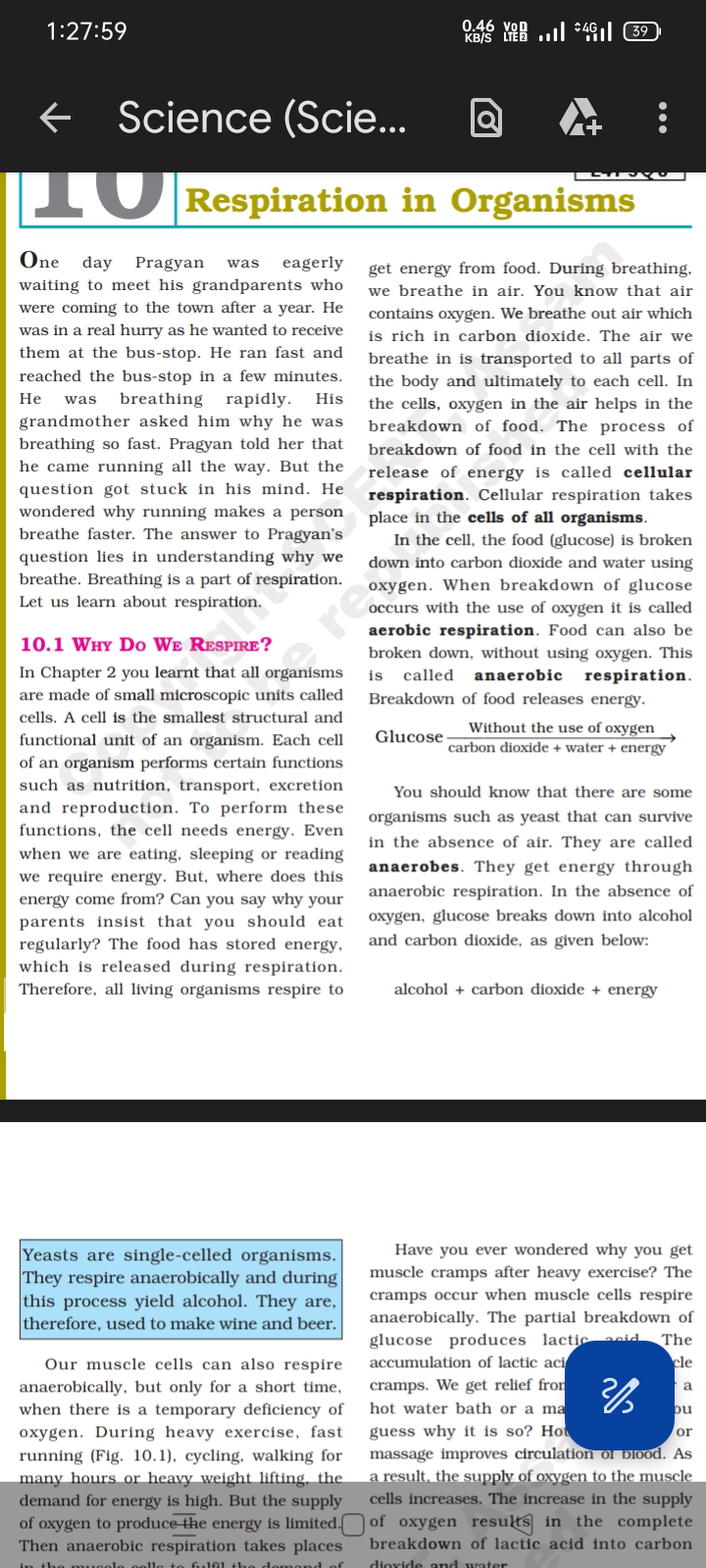What is respiration in organisms and why do we respire?

Understand the Problem
The question is focused on respiration in organisms, exploring why we breathe and how cellular respiration works, both with and without oxygen.
Answer
Respiration releases energy from food in cells, enabling vital functions.
The final answer is: Respiration is a chemical process in cells where energy is released from food, involving oxygen to produce energy, carbon dioxide, and water. Respiration powers vital cellular activities.
Answer for screen readers
The final answer is: Respiration is a chemical process in cells where energy is released from food, involving oxygen to produce energy, carbon dioxide, and water. Respiration powers vital cellular activities.
More Information
Respiration is crucial as it converts nutrients into usable energy, supporting all bodily functions. Aerobic respiration is more efficient than anaerobic in energy yield.
Tips
Confusing breathing with cellular respiration; remember, breathing is just one part of the respiration process.
Sources
- Types and Phases Of Respiration In Organisms - BYJU'S - byjus.com
- Cellular respiration review (article) - Khan Academy - khanacademy.org
- Why do We Respire? - Vedantu - vedantu.com
AI-generated content may contain errors. Please verify critical information